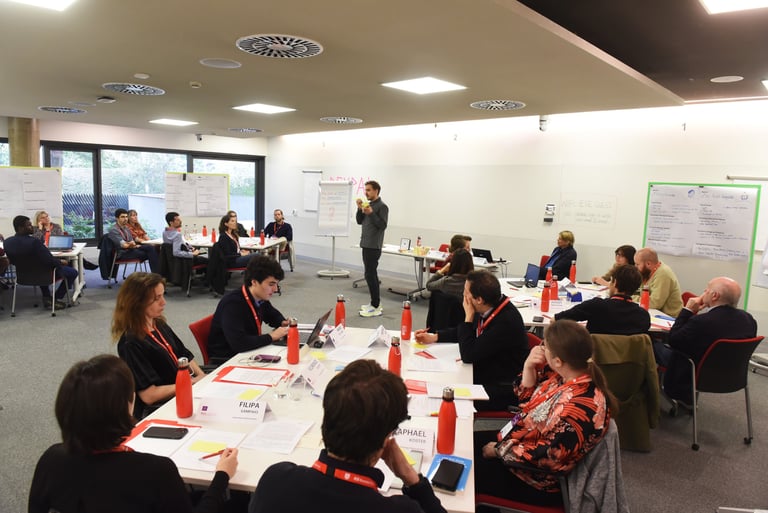Business-as-Usual Sucks Because it is Survival Mode
Science has made eye-opening discoveries that have shifted how we understand nervous systems.
It is just that somehow, this knowledge has not made its way in most of today’s leadership development approaches yet.
The result? We succeed not through, but despite our biological reality.
And that comes at quite a cost.
It is like driving your car with the handbrake partially engaged – without knowing.
In the best case, it simply means more fuel is needed for the same trip.
In the worst case, the friction on the brakes creates more and more wear-and-tear over time.
At one point, warning lights go on.
And in case those are ignored, parts of the car start overheating and eventually breaking down.
This is exactly what we are doing in business organizations. We are working against, not with, the biological principles of our nervous system.
And this is despite the fact that the state of our nervous system influences all of our behaviors in daily life, both private and business.


Think about this for a moment: at the core, what are you being paid for as a leader? Like, really? And no, I don’t mean attending myriads of alignment meetings and responding to the latest flood of emails (although sometimes, I get it might feel that way).
Feel into that question right now. What skills do you need to deliver outstanding results in your role?
Not any results, I mean the kind of results that make you go "I feel so damn proud of what we achieved together!” at the end of the year? These are probably on top of your list:
Strategic decision-making, complex problem-solving
Adapting and responding to change
High-impact communication and interpersonal influence
Long-term resilience
Here is the kicker: For all of the above, science has shown that the state of your nervous system plays a crucial role in how well you can access these leadership skills in the moment.¹²³⁴⁵
Let that sink in for a moment.
How well you can deliver on the most important parts of your job description crucially depends on this one thing.
Yet rarely are nervous system skills taught in leadership, let alone embedded in the culture and systems of a business organization.
It needs boldly human leaders to change that.
My work is here to guide them along their way.
(1) Kim, E. J., & Kim, J. J. (2023). Neurocognitive effects of stress... Molecular Psychiatry, 28(7), 2750–2763.
(2) Giovanniello, J. R., … & Wassum, K. M. (2025). A dual-pathway architecture … Nature, 640, 722–731.
(3) Price, C. J., & Hooven, C. (2018). Interoceptive awareness skills for emotion regulation.... Frontiers in Psychology, 9, Article 798.
(4) Nitschke, J. P., & Bartz, J. A. (2023). The association between acute stress & empathy... Neuroscience and Biobehavioral Reviews, 144, Article 105003.
(5) An, E., Nolty, A. A. T., Amano, S. S., Rizzo, A. A., Buckwalter, J. G., & Rensberger, J. (2020). Heart rate variability as an index of resilience. Military Medicine, 185(3–4), 363–369.


Your Nervous System Holds The Key
Curious if you are a fit for 1:1 coaching?

